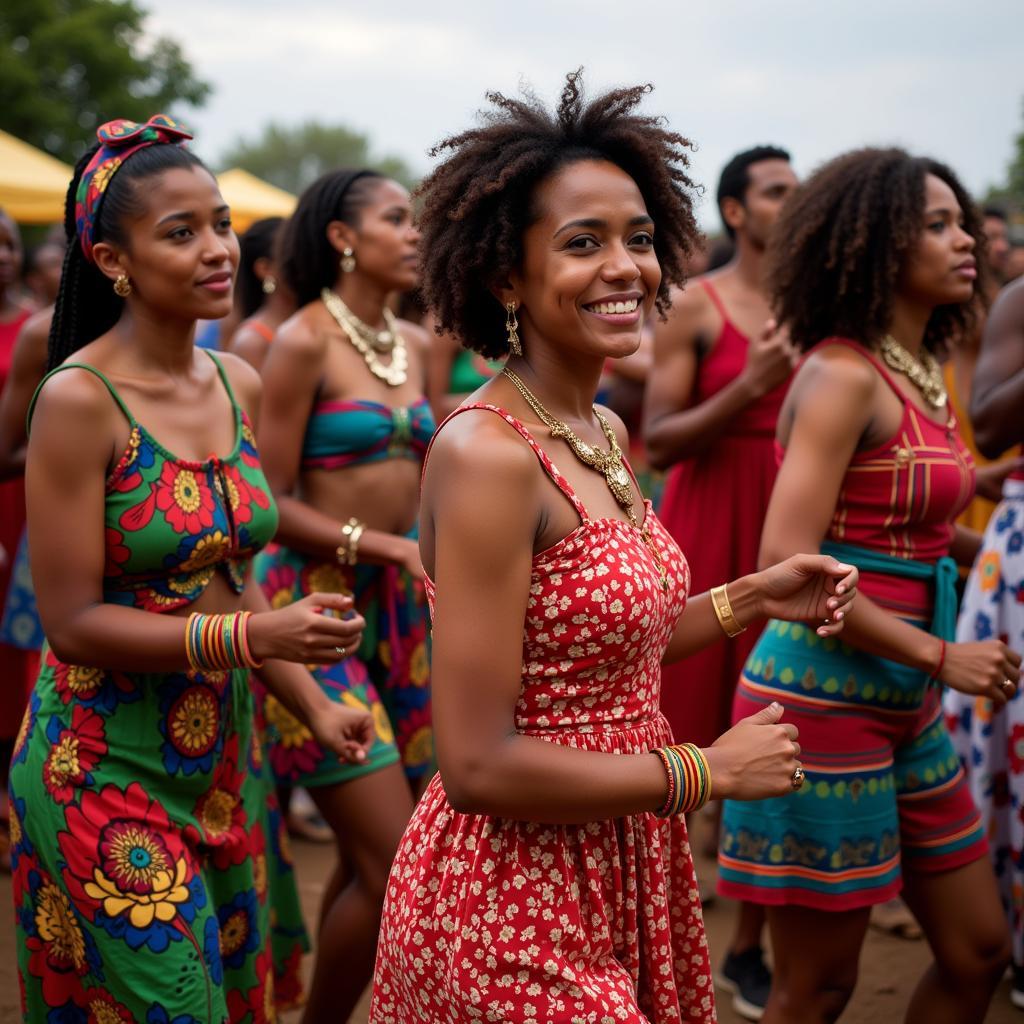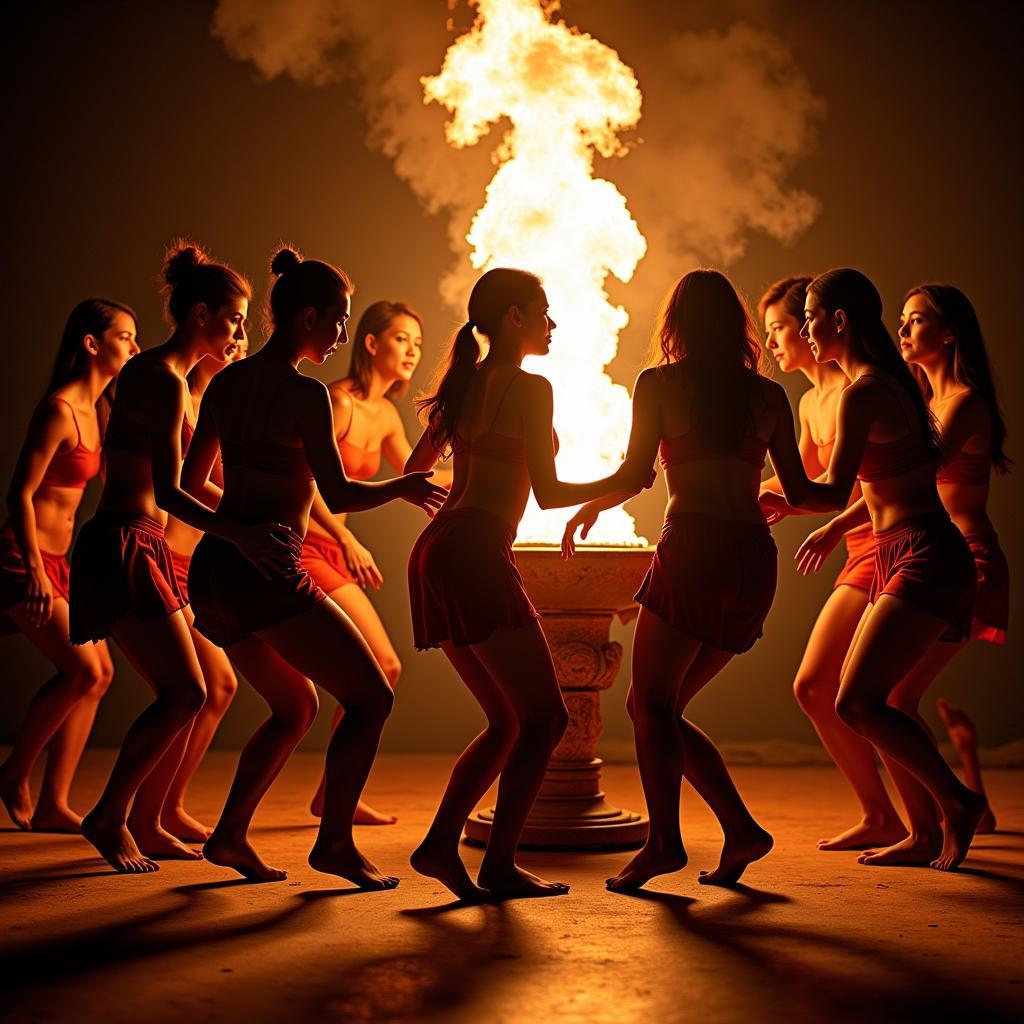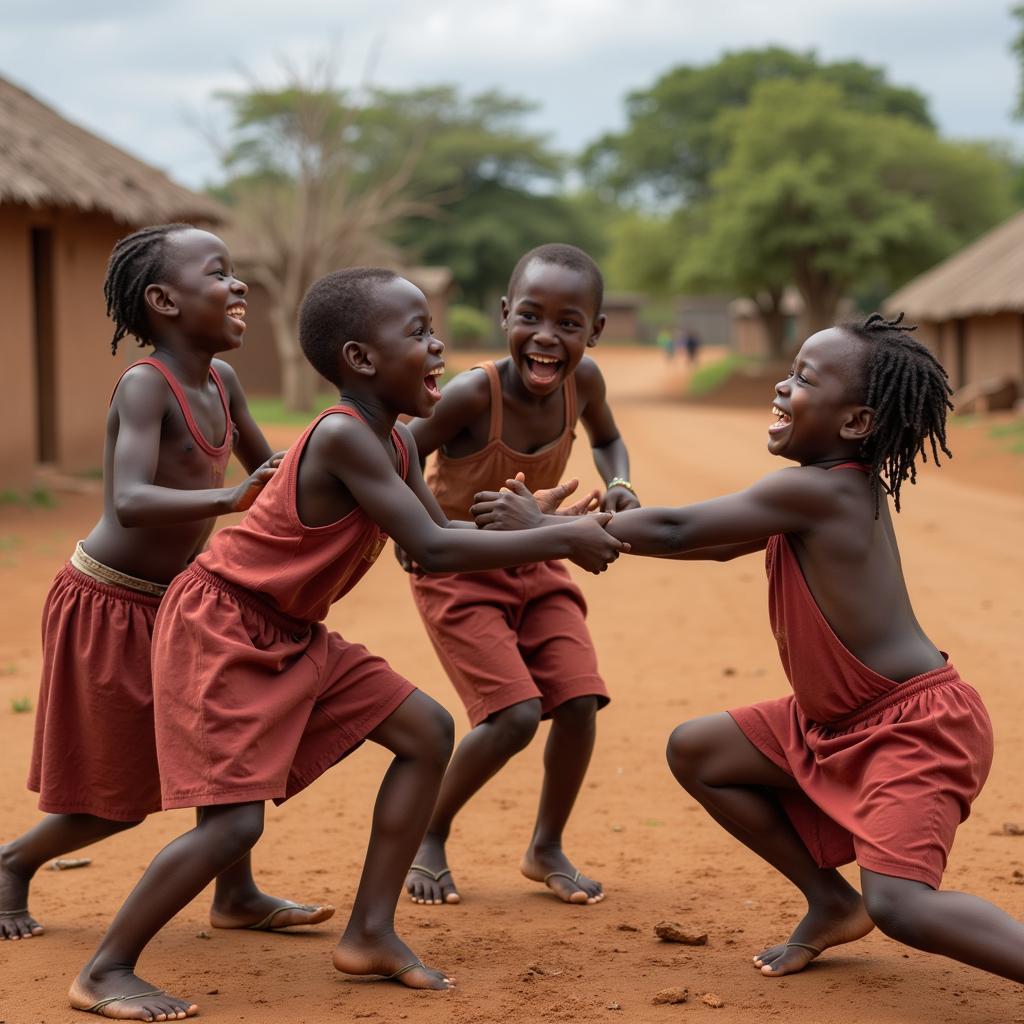The Rhythmic Farewell: Unveiling the Significance of the African Funeral Dance
The African Funeral Dance, an evocative blend of mourning and celebration, offers a powerful lens through which to understand the continent’s rich cultural tapestry. Far from a somber affair, these dances are vibrant expressions of life, death, and the enduring connection between the two.
 African Funeral Dance Celebration
African Funeral Dance Celebration
More Than Mourning: Understanding the Multifaceted Roles of Dance
In many African cultures, death is not viewed as an end but as a transition, a passage into the ancestral realm. African funeral dances reflect this belief, serving as a bridge between the living and the departed. They provide a powerful outlet for grief, allowing mourners to express their sorrow collectively through synchronized movements and soulful rhythms. Yet, these dances also serve as celebrations of the life lived, acknowledging the deceased’s contributions to the community and wishing them a peaceful journey into the afterlife.
 African Funeral Dance Ritual
African Funeral Dance Ritual
A Tapestry of Traditions: Exploring Regional Variations
The diversity of the African continent is reflected in its funeral dances, each region boasting unique styles and interpretations. In Ghana, the “Adowa” dance, traditionally performed by women, features elegant movements and intricate footwork. Meanwhile, the “Gule Wamkulu” of the Chewa people in Malawi incorporates elaborate masks and costumes, transforming the funeral procession into a mesmerizing spectacle. From the energetic rhythms of West Africa to the more subdued movements of the East, each dance carries a distinct cultural significance, highlighting the vast spectrum of African traditions.
Music as the Conduit: The Soul-Stirring Sounds of Mourning and Celebration
Music forms the heart of the African funeral dance, its evocative melodies and rhythms amplifying the emotions of the occasion. Traditional instruments like drums, horns, and rattles set the tempo, creating a soundscape that resonates deeply with both dancers and observers. The music can be mournful and reflective, expressing the pain of loss, or it can be upbeat and celebratory, honoring the life of the deceased and encouraging the living to celebrate their legacy.
A Cultural Legacy Endures: Preserving Traditions in a Modernizing World
As Africa navigates the complexities of globalization and modernization, the African funeral dance continues to hold a significant place in many communities. While urban areas may see some adaptations to these ancient rituals, the core essence remains intact, passed down through generations. The dances offer a powerful link to the past, reminding younger generations of their heritage and the values of community and respect for ancestors.
FAQs about African Funeral Dances
1. Are all African funeral dances somber?
No, while some dances express grief, many also celebrate the life lived and the transition to the ancestral realm.
2. What is the significance of the costumes and masks used in some dances?
Costumes and masks often hold symbolic meaning, representing spirits, ancestors, or specific roles within the community.
3. Do men and women participate equally in these dances?
The roles of men and women vary depending on the specific cultural context. Some dances are exclusively performed by one gender, while others involve both.
4. Are outsiders welcome to observe or participate in these ceremonies?
Respect for local customs is crucial. It’s best to inquire about appropriate etiquette before attending or participating in a funeral dance.
5. Are there any resources for learning more about specific African funeral dances?
Yes, there are numerous books, documentaries, and online resources that delve deeper into the rich traditions of African funeral dances.
Seeking More Insights into African Culture?
Explore the diverse world of African traditions and experiences with these related articles:
- Learn about the social gatherings centered around the African braai.
- Discover the African countries starting with M.
- Explore the unique flavors of African chicken items.
Contact us at +255768904061, kaka.mag@gmail.com, or visit our office in Mbarali DC Mawindi, Kangaga, Tanzania. Our dedicated team is available 24/7 to assist you.


